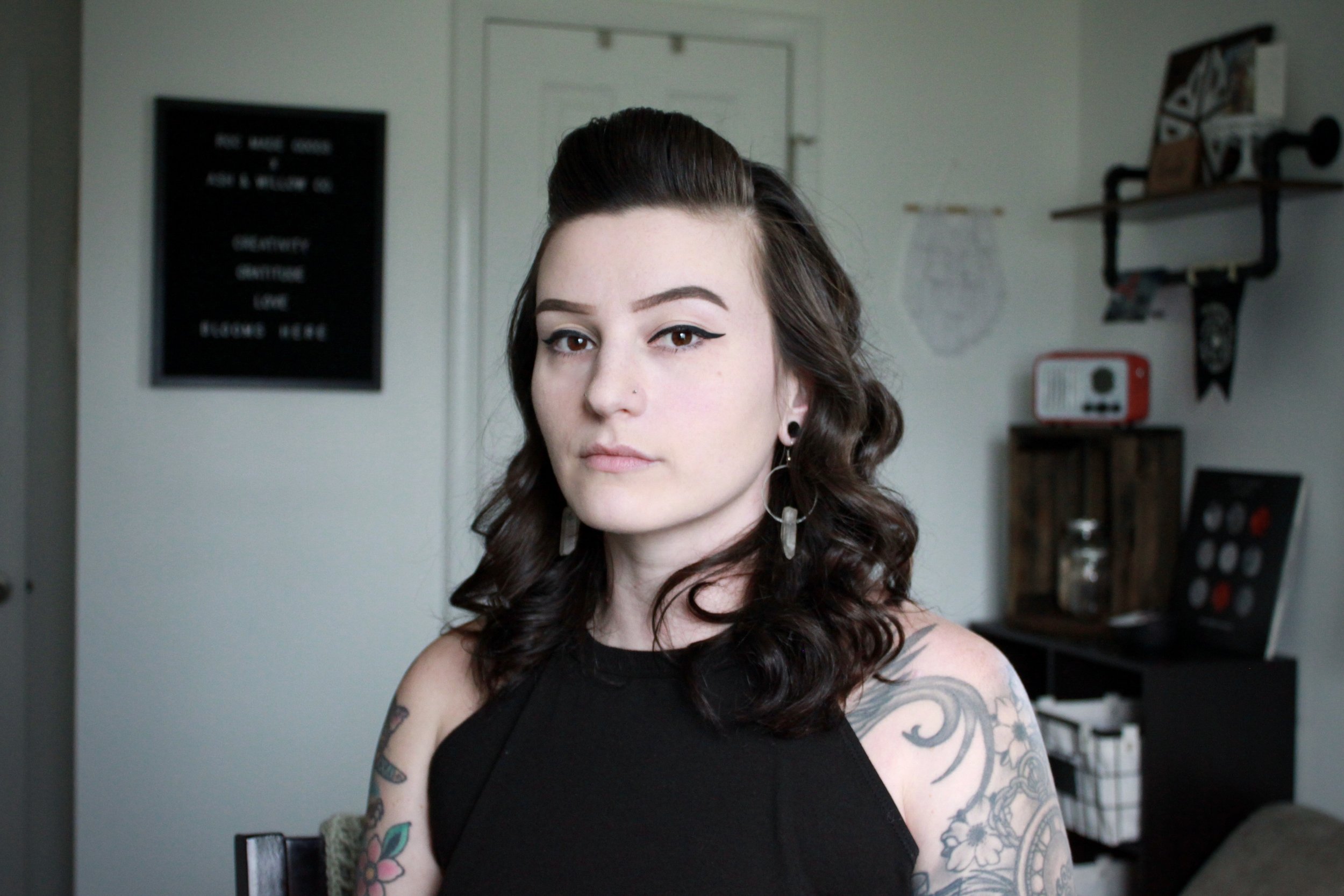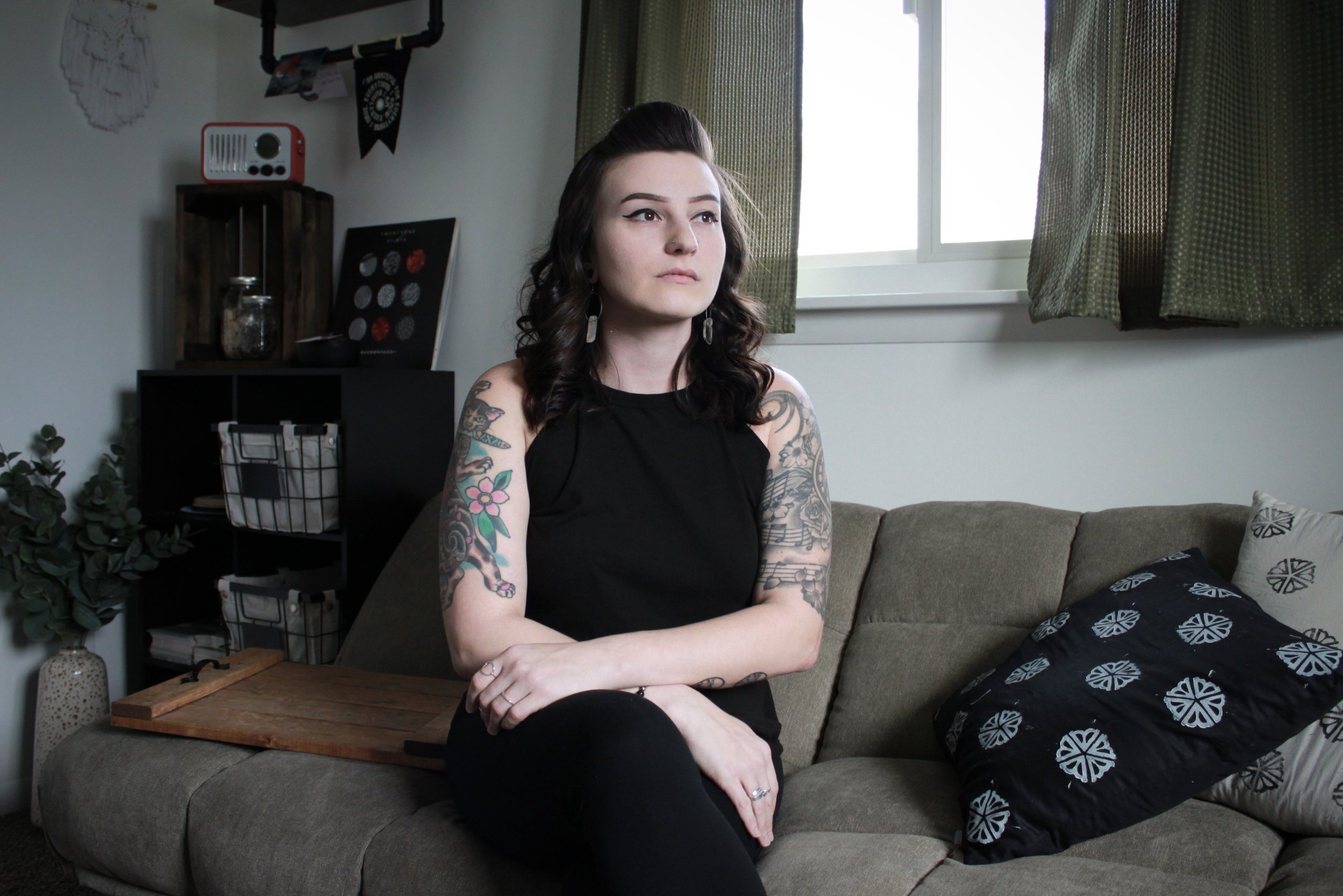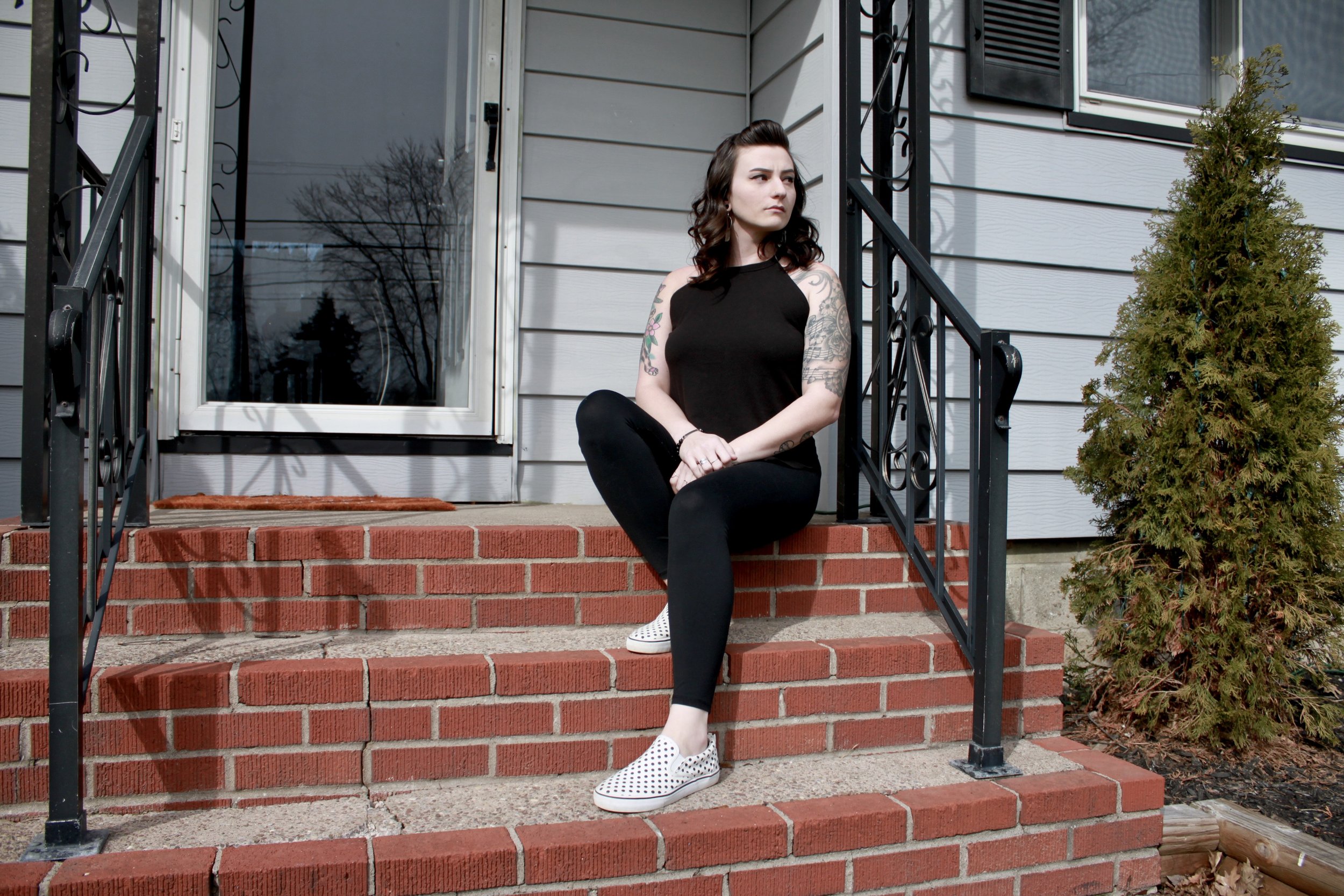Grace Bellanca
“Recovery to me means doing the work, no matter which way you work it. Whatever you're overcoming or managing requires diligent and consistent healing, because dark days don't care how long you've been free of your addictions or how well you've been managing your mental health struggles, they'll still come for you. Behavioral unlearning, humility, accountability, forgiveness, self-awareness, affirmation, the desire to be the best version of myself - all part of the work I do, daily, to stay alcohol-free and to manage my depression, anxiety and rage. You have to want it for yourself, that's the only way it works.”
NAMI: Have you ever had any mental health struggles? Do you live with a diagnosis? What has your experience been?
GB: I've struggled with my mental health my whole life. I grew up in a physically & mentally abusive home and found really unhealthy ways to cope with all the feelings that stemmed from that experience. I've been diagnosed with depression, anxiety and a rage disorder. I've also suffered from suicidal ideations and alcoholism since I was a teenager. All of which I wasn't able to manage until 2 and a half years ago when I stopped drinking.
NAMI: If you have had struggles, how have you healed and grown from your experiences? If you consider yourself in recovery from something, what does recovery mean to you?
GB: I let my childhood experience define me for a really long time. I was a very angry, bitter, impulsive person before I stopped drinking and started focusing on my healing and the root causes of my behavior & actions. Now I try to identify my emotions & triggers before reacting and be more mindful about my energy when interacting with other people and myself. I think it's a forever kind of process, healing and growth.
GB: Recovery to me means doing the work, no matter which way you work it. Whatever you're overcoming or managing requires diligent and consistent healing, because dark days don't care how long you've been free of your addictions or how well you've been managing your mental health struggles, they'll still come for you. Behavioral unlearning, humility, accountability, forgiveness, self-awareness, affirmation, the desire to be the best version of myself - all part of the work I do, daily, to stay alcohol-free and to manage my depression, anxiety and rage. You have to want it for yourself, that's the only way it works.
NAMI: How do you protect your mental health? What forms of self-care do you practice? What keeps you balanced?
GB: Boundaries are big, as they should be. I have to set & enforce a lot with my family and with social media, especially as someone who runs multiple accounts. I follow a small number of people on my personal page and I limit my time/interactions when I'm working on one of my business pages. Social media is toxic and comparison is a killer.
GB: Self-care for me looks a lot like prioritizing rest. As someone who's had to provide for herself since 17, I know how to hustle and I hustle HARD. Which isn't a bad thing, unless you work yourself so hard you burn out at a dangerous level. So making sure I'm taking breaks to recharge my mind and body is very important to me now. One of the biggest things I can attribute to my ability to remain alcohol-free would be my creative outlet with Ash and Willow Co. Cross stitching keeps my hands & mind busy in a healthy way and the knowledge that I'm helping people feel seen and included with my recovery gifts and affirmation hoops keeps me going strong in my own recovery. As for balance, I find a lot of comfort in routine. I function at my best with structure, plans, schedules, organization. I think it has to do with having control over my life and how at one point I had completely lost that. It's a fine line between healthy and fear driven so I make sure to also exercise flexibility and again, rest.
NAMI: What forms of mental health-related stigma have you observed or run into personally? How do you combat stigma?
GB: Being vocal about my mental health struggles and recovering from addiction can be difficult at times. I just do my best to not take things personally and know that most of the time the person is just projecting and more than likely needs to do a little healing of their own. I speak my truth and live my life as an example, the rest is up to them. I will say stigma is perpetuated by perception and society has painted a very clear picture of how alcoholics & addicts should be treated and it’s evident from the systems to the streets. I believe that addiction is a mental health struggle and the underlying causes of addiction, like depression or trauma, should be talked about abundantly more in a world that glorifies alcohol and big pharma.
NAMI: Do you feel like you have enough support or is it challenging to find accessible and affordable treatment/therapy, etc.?
GB: I am incredibly fortunate to have a very supportive group of humans around me that keep me grounded in my recovery. I am currently not in treatment, but I do recognize the hurdles that are out there for those who seek help with treatment/therapy. Which is why I’m grateful for all of the amazing organizations and individuals out there who help those in need while we continue to work towards Mental Health being recognized & treated as equally important as Physical Health.
NAMI: You use your platform on Roc Made Goods to fundraise for various mental health initiatives in the community. What pulls you to do this community service?
GB: I try to use my businesses as an extension of my personal efforts in the fight for mental health. Roc Made Goods has enough of a presence and following that it allows me to organize fundraising efforts that help make impactful contributions to those mental health initiatives. I think those with a platform of any kind or size have a responsibility to use it for good and as long as I have mine I will continue to use it to give back to our community.
NAMI: What pulls me to do this service is the knowledge that there are so many people out there suffering right now and that I have the ability to help make a difference. We are losing people every single day to their struggles with their mental health or addictions. Those losses are what drives me. I am so incredibly grateful that I was given a second chance at life, so I'm doing everything in my power to help others get their second chance too.
For Jessie <3



